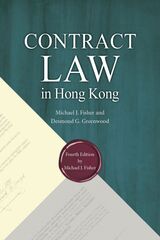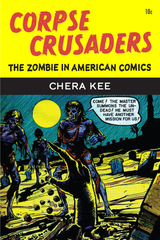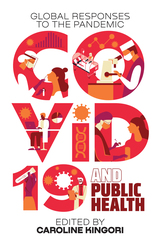6 start with T start with T
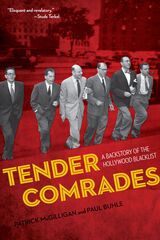
More than sixty years ago, McCarthyism silenced Hollywood. In the pages of Tender Comrades, those who were suppressed, whose lives and careers were ruined, finally have their say. A unique collection of profiles in cinematic courage, this extraordinary oral history brings to light the voices of thirty-six blacklist survivors (including two members of the Hollywood Ten), seminal directors of film noir and other genres, starring actresses and memorable supporting players, top screenwriters, and many less known to the public, who are rescued from obscurity by the stories they offer here that, beyond politics, open a rich window into moviemaking during the Golden Age of Hollywood.

From 1949 to 1978, communist elites held clashing visions of China’s economic development. Mao Zedong advocated the “first way” of semi-autarchy characteristic of revolutionary Stalinism (1929–34), while Zhou Enlai adapted bureaucratic Stalinism (1934–53) to promote the “second way” of import substitution industrialization. A Third Way tells the story of Deng Xiaoping’s experimentation with export-led development inspired by Lenin’s New Economic Policy and the economic reforms of Eastern Europe and Asia.
Having uncovered an extraordinary collection of internal party and government documents, Lawrence Reardon meticulously traces the evolution of the coastal development strategy, starting with special economic zones in 1979 and evolving into the fourteen open coastal cities, the Hainan SEZ, and eventual accession to the global trade regime in 2001. Reardon details how Deng and Zhao Ziyang tackled large-scale smuggling operations, compromised with Chen Yun’s conservative views, and overcame Deng Liqun’s ideological opposition. Although Zhao Ziyang was airbrushed out of official Chinese history after June 4, 1989, Reardon argues that Zhao was the true architect of China’s opening strategy. A Third Way provides important new insights about the crucial period of the 1980s and how it paved the way for China’s transformation into a global economic superpower.
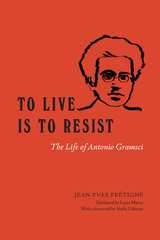
One of the most influential political thinkers of the twentieth century, Antonio Gramsci (1891–1937) has left an indelible mark on philosophy and critical theory. His innovative work on history, society, power, and the state has influenced several generations of readers and political activists, and even shaped important developments in postcolonial thought. But Gramsci’s thinking is scattered across the thousands of notebook pages he wrote while he was imprisoned by Italy’s fascist government from 1926 until shortly before his death.
To guide readers through Gramsci’s life and works, historian Jean-Yves Frétigné offers To Live Is to Resist, an accessible, compelling, and deeply researched portrait of an extraordinary figure. Throughout the book, Frétigné emphasizes Gramsci’s quiet heroism and his unwavering commitment to political practice and resistance. Most powerfully, he shows how Gramsci never surrendered, even in conditions that stripped him of all power—except, of course, the power to think.
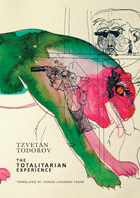
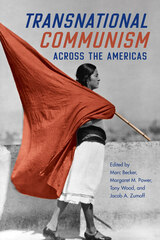
Contributors: Marc Becker, Jacob Blanc, Tanya Harmer, Patricia Harms, Lazar Jeifets, Victor Jeifets, Adriana Petra, Margaret M. Power, Frances Peace Sullivan, Tony Wood, Kevin A. Young, and Jacob Zumoff

Robert Service completes his masterful trilogy on the founding figures of the Soviet Union in an eagerly anticipated, authoritative biography of Leon Trotsky.
Trotsky is perhaps the most intriguing and, given his prominence, the most understudied of the Soviet revolutionaries. Using new archival sources including family letters, party and military correspondence, confidential speeches, and medical records, Service offers new insights into Trotsky. He discusses Trotsky’s fractious relations with the leaders he was trying to bring into a unified party before 1914; his attempt to disguise his political closeness to Stalin; and his role in the early 1920s as the progenitor of political and cultural Stalinism. Trotsky evinced a surprisingly glacial and schematic approach to making revolution. Service recounts Trotsky’s role in the botched German revolution of 1923; his willingness to subject Europe to a Red Army invasion in the 1920s; and his assumption that peasants could easily be pushed onto collective farms. Service also sheds light on Trotsky’s character and personality: his difficulties with his Jewish background, the development of his oratorical skills and his preference for writing over politicking, his inept handling of political factions and coldness toward associates, and his aversion to assuming personal power.
Although Trotsky’s followers clung to the stubborn view of him as a pure revolutionary and a powerful intellect unjustly hounded into exile by Stalin, the reality is very different. This illuminating portrait of the man and his legacy sets the record straight.
READERS
Browse our collection.
PUBLISHERS
See BiblioVault's publisher services.
STUDENT SERVICES
Files for college accessibility offices.
UChicago Accessibility Resources
home | accessibility | search | about | contact us
BiblioVault ® 2001 - 2024
The University of Chicago Press


